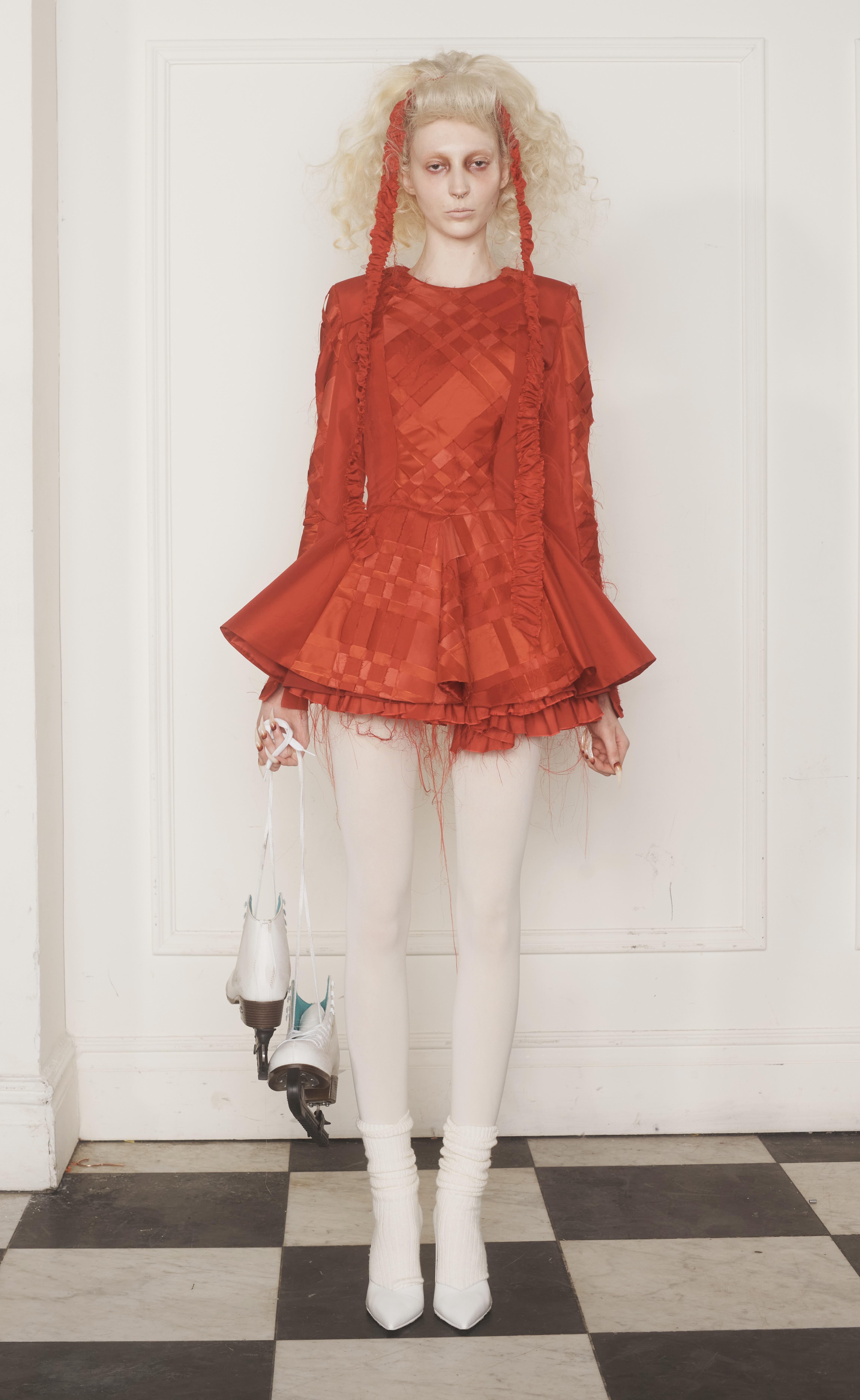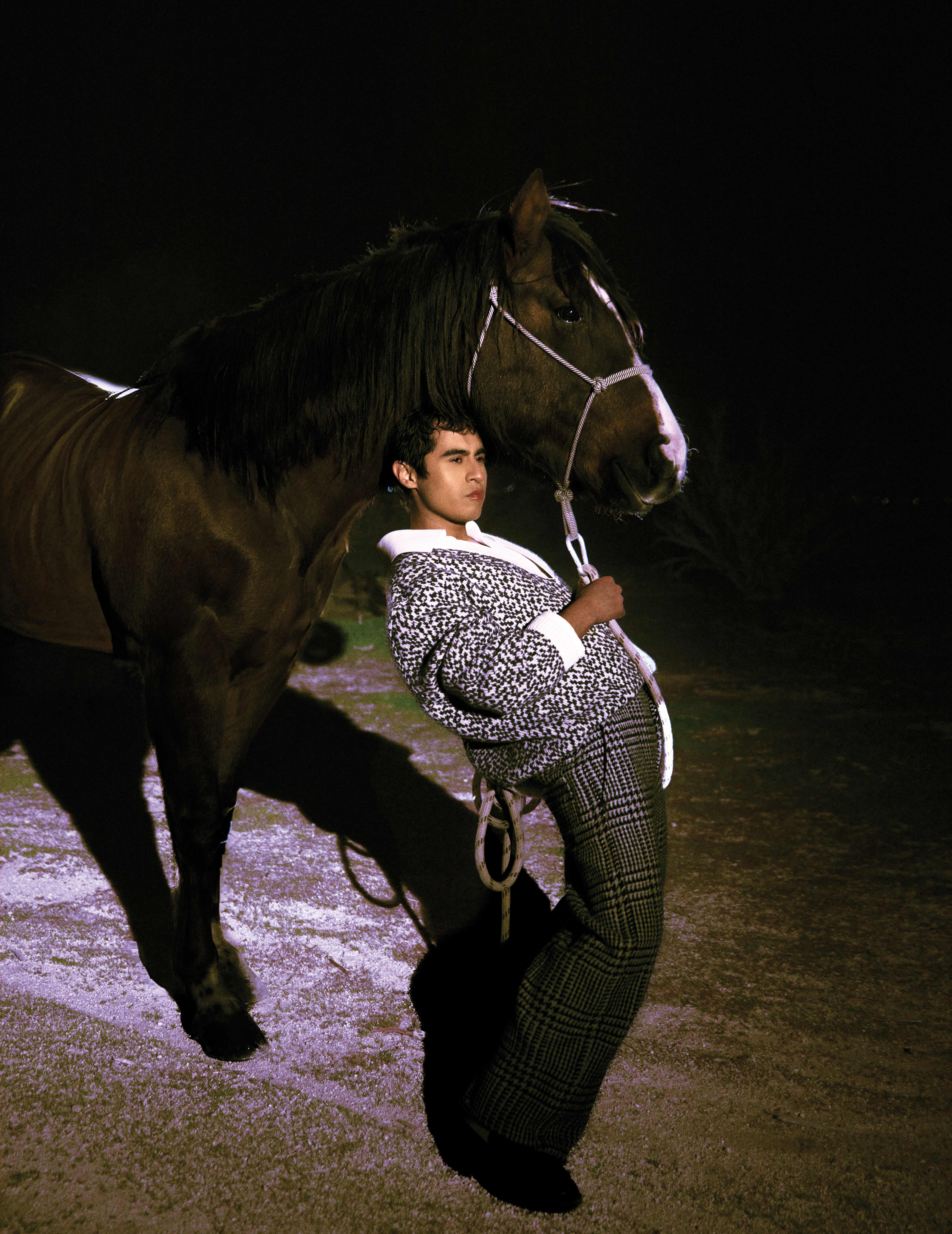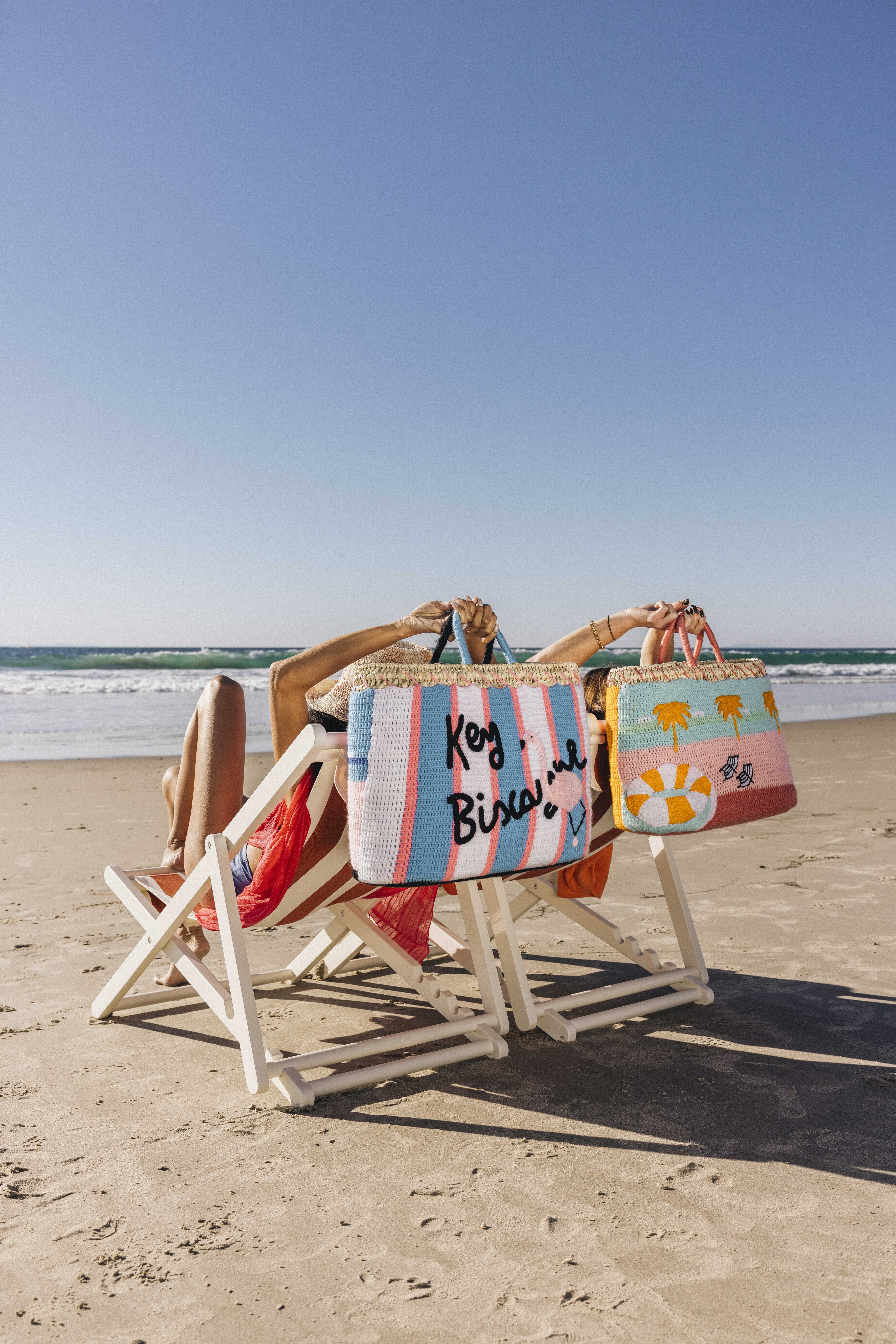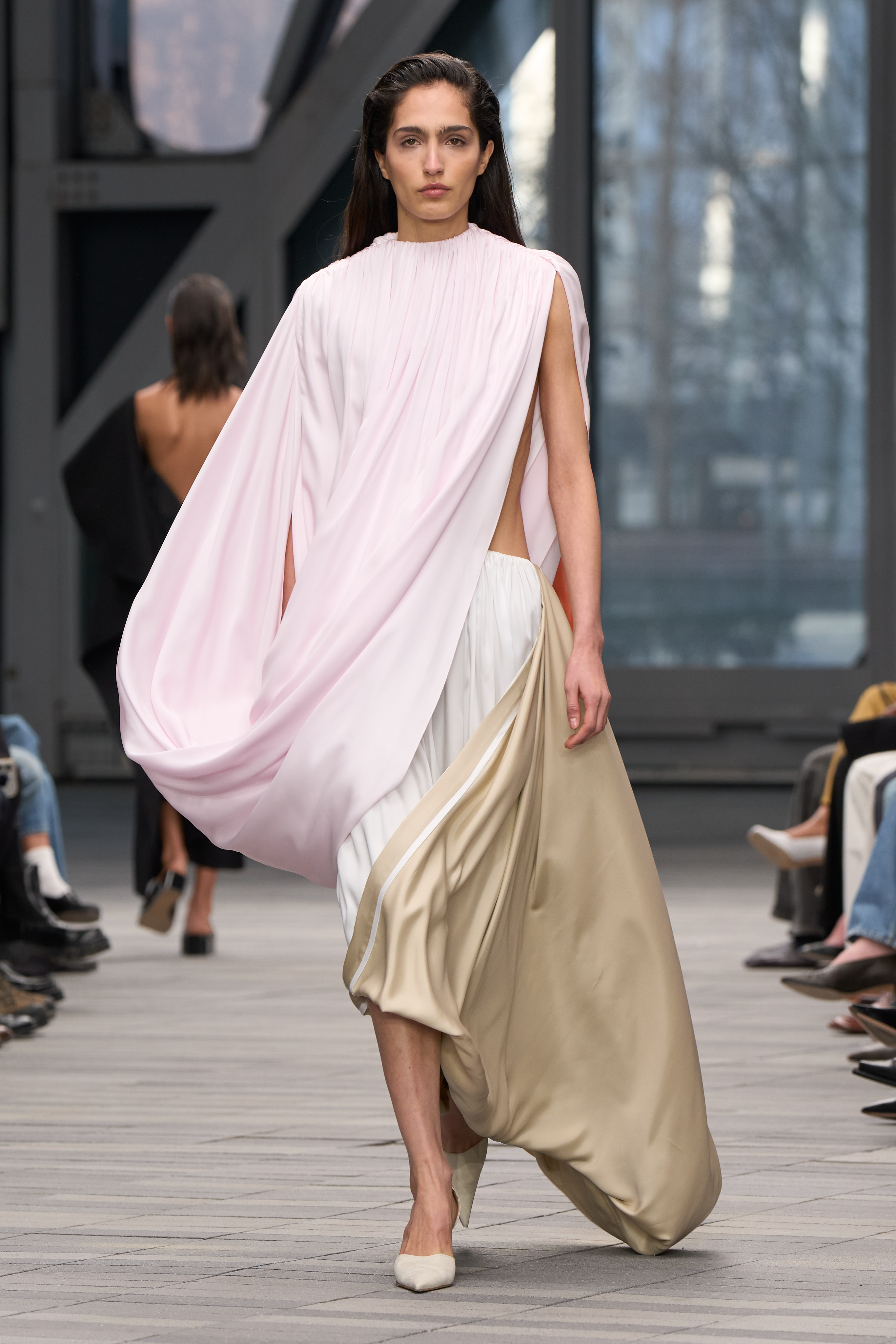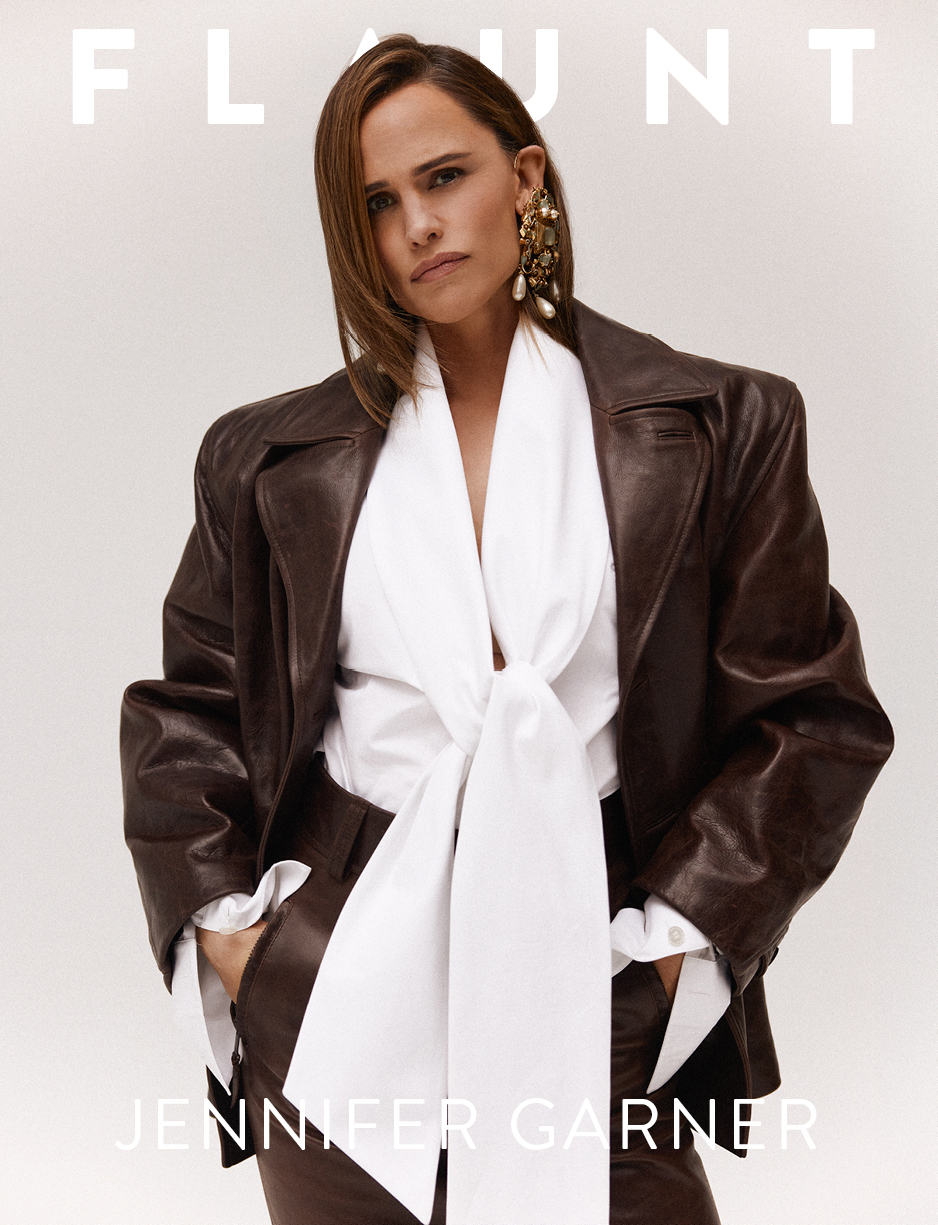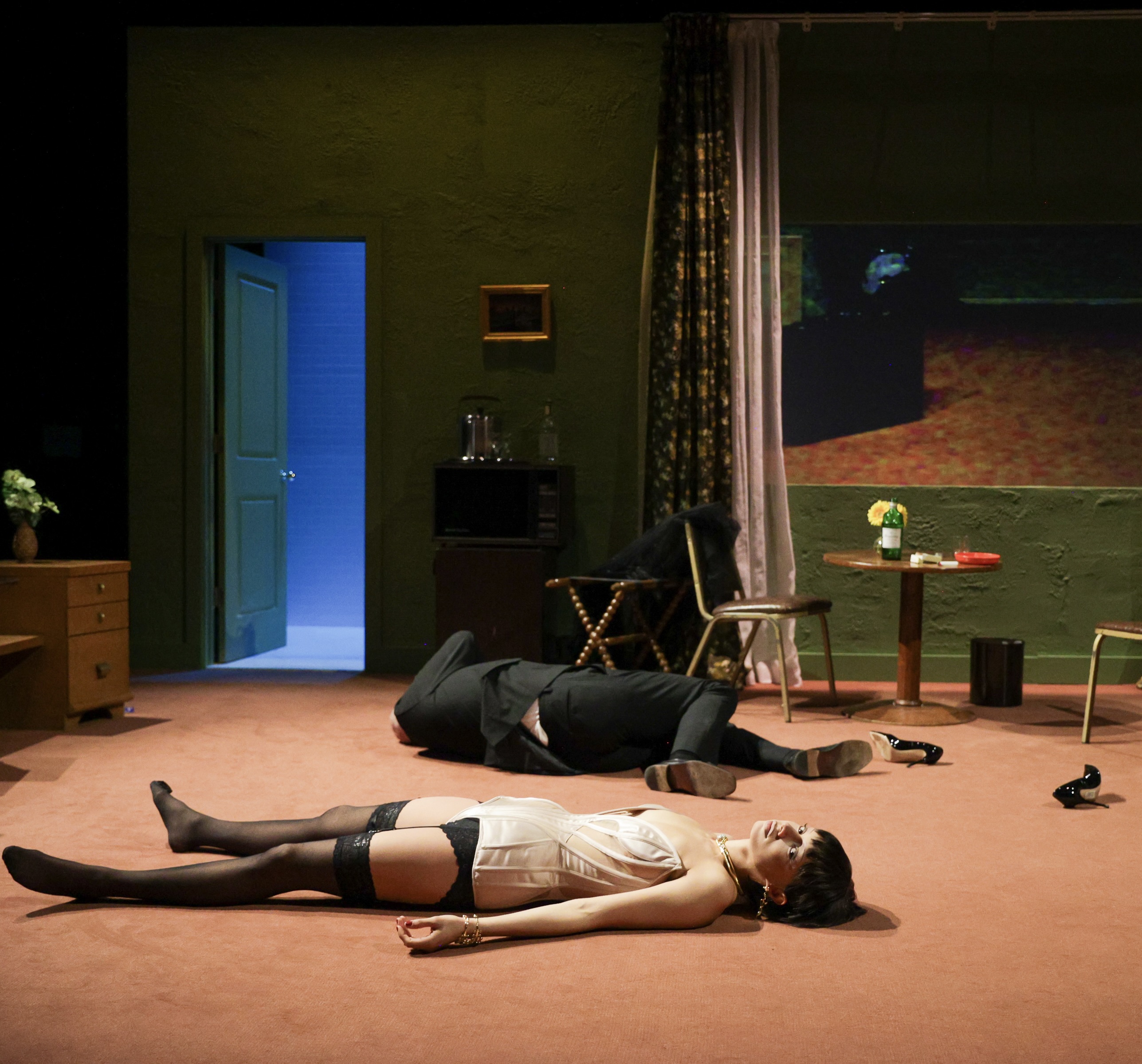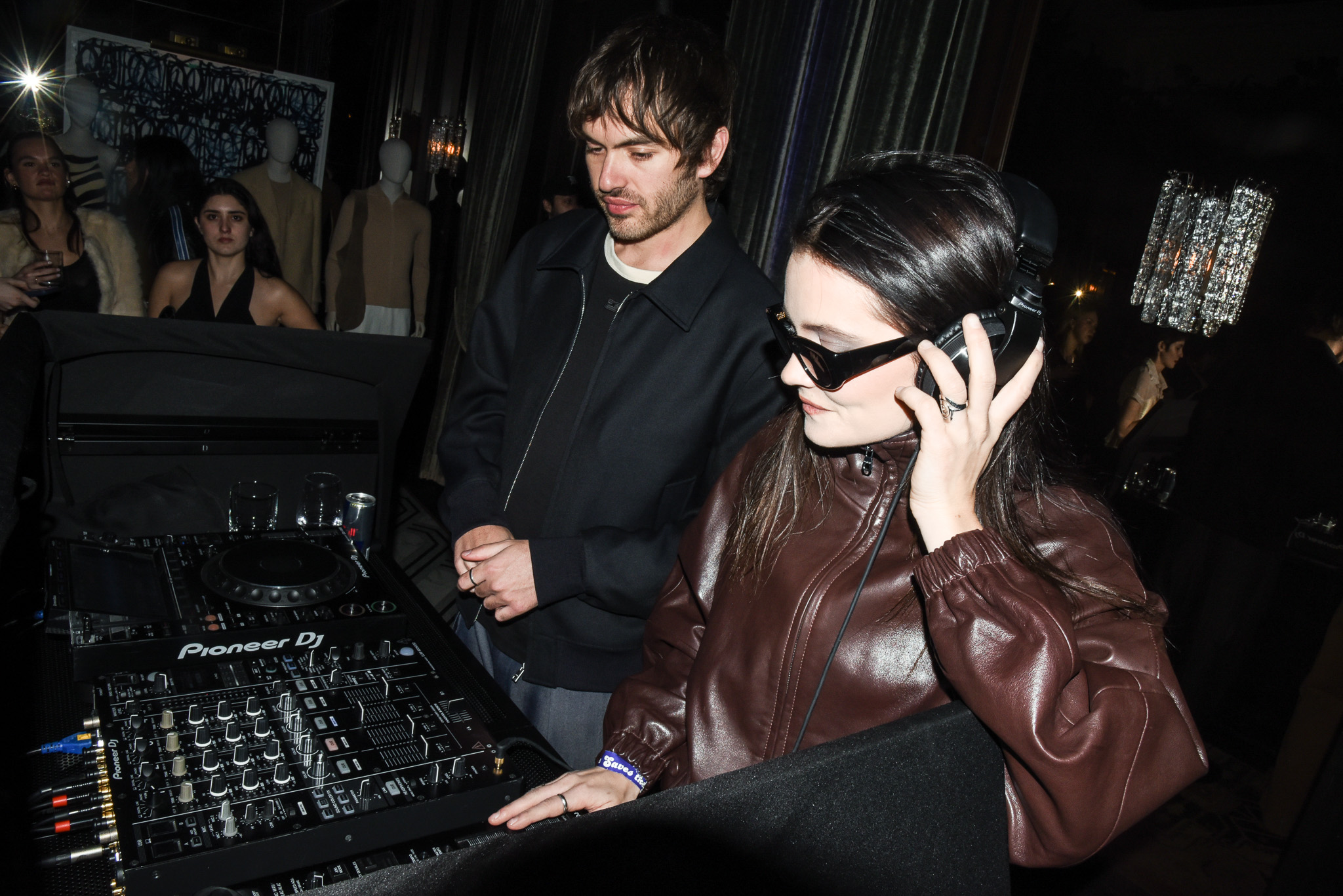

"I now live in New Orleans and am pulling together a band of young hot shots to go out on the road. How cool is that for a middle-age lady?"
Before she was opening shows for The Clash and The English Beat as the founder/ front woman of long-running Chicago ska trailblazers Heavy Manners, Kate Fagan released the cult new wave single "I Don’t Wanna Be Too Cool" on a tiny local imprint, Disturbing Records.
Kate wrote the track after moving to Chicago from New York in the late 70’s. “I pretty much came to visit Chicago and fell in love with the scene and never left,” she remembers. “At the time I’d been working at New York magazine and was getting dismayed watching the CBGB scene give way to the whole Studio 54/velvet rope thing. So I spontaneously moved to Chicago, which was much more inclusive and everyone wasn’t standing around peering at each other from behind their shades. But eventually I saw that same kind of divisive hipster culture start to creep in. ‘Too Cool’ was my reaction to that.”
Flaunt scored the premiere of the video of "I Don't Wanna Be Too Cool," featuring original footage from when the track was originally released:
Then we caught up with Fagan about the music industry through the decades and her inspirations for the track:
**You came to Chicago to make music in the late 70s. What was it about the music scene in Chicago at the time that inspired you?**
Moving to Chicago from New York City in the late 70s, I met wild-spirited club kids on Lincoln and Belmont Avenues, moved into an apartment across from the fledgling Steppenwolf Theater, and I fell in love with the energy and sweeping sense of freedom to do anything I could imagine. The drinking age was 19 and I started bartending at The Bulls and Kingston Mines, two electrifying music venues. I was exposed to amazing musicians on a nightly basis, such as Tom Waits and Otis Rush, Ramsey Lewis and Koko Taylor, Willie Dixon and Buddy Guy, Steve Goodman and Paul Butterfield. I got swept up into the nightlife and the energy of creative people. Soon, I bought a bass and the songwriter inside me began emerging. When I ran into the boys at Disturbing Records, we became a DIY force by staging warehouse shows and cutting irreverent records.
**What was it like being a "local star"of sorts? Did it feel, in a way, more gratifying to be validated within a tight-knit community than it might feel receiving widespread acclaim?**
Live music was king in the pre-MTV era, with countless venues and good pay. It was gratifying to flip clubs from suburban rock establishments into new wave and punk bars and to be among the first new wave bands to perform at suburban festivals and open for international acts in premiere venues. The scene had the spirit of a revolution and caused an explosion of great bands. Because I gleaned curiosity, local airplay, and press, and joined with magnetic performers, I had the luck to be on the bill with personal heroes, like the Ramones, Grace Jones, The Clash, Black Uhuru, Third World, Jimmy Cliff, and of course, Peter Tosh, who went on to produce a record for Heavy Manners, his only work as a producer.
**What can you identify from the cultural and political climate of the late 70s and early 80s?**
How did that influence these songs? Do you think the songs are still exigent today? I found myself writing protest music early on. Growing up in the Viet Nam war era of demonstrations influenced me and my father was a lawyer in civil rights movement. We lived outside Washington, DC, and everything there is politicized. I’d run to get the newspaper in the morning to read the editorials on women’s rights, black power, and the sins of Richard Nixon. In school, I wrote for the newspaper and found comrades among the editorial staff (eventually, I earned a degree in Journalism from Indiana University’s Ernie Pyle School). In Chicago, I became heavily involved in Rock Against Racism as a political movement. I helped organize the Lincoln Park RAR concert and dozens of club dates. RAR brought together musicians from Latin, funk, punk, new wave, electronic, reggae, and other styles. The footage from the Lincoln Park Concert is in Chicago’s public archives; it was a pretty big deal at the time. Heavy Manners was an extension of RAR and the collective trepidation of Reagan’s election. It’s a band that exemplifies diversity and is grounded in reggae’s political grit. We hit it hard.
**Is political music important today?**
Rock ‘n roll that spits out the truth and rides rough over the bullshitters is relevant forever.
**The songs on this album have a wide range of subject matter, from nuclear, Armageddon crises to wanting your lover to come over. What was going on in your head at the time of writing these tracks?**
The new tracks on this record originate from a rock opera I wrote and performed at the Limelight and Park West. They are part of a larger story about love, loss, drugs, and nightlife entitled “The Kissing Concept.” I began writing the song cycle while attending the Bloom School of Jazz. When stretching into new musical ideas, songs came tumbling out. After “Too Cool,” I became captivated with recording. As I became more sophisticated in the studio, arrangements like the one for “Master of Passion” developed in my head. When I write, it’s a mash up of thoughts and feelings that become a metaphor, which is the song itself. If I am lucky, I will undergo an epiphany when writing.
**Your work has a very homemade, DIY sound to it. Did you want to honor that analogue-sounding intimacy in the re-release?**
The label wanted the tracks to be authentic. I did go through a process of finding a studio that could safely do the transfers from original analogue tapes to digital format and then remastering. Blackbird Studio in Nashville archived for Willie Nelson and Waylon Jennings, so I was confident they could bake my tapes and transfer them. They did a remarkable job. There are five more songs demoed from the rock opera that Blackbird also transferred that I would like to release.
**After this single sold out in 1980, you made 1,000 extra copies of the record that burned in a fire. Did that discourage you from continuing to make solo music?**
The emotional challenge of seeing everything of mine incinerated cut deeply into my happiness. The very next noon, I played an outdoor show at the University of Wisconsin in Madison. I wasn’t sure I could pull myself together, weeping all the way there, but I did. Music really does heal and performing helped to allow my feelings to run riot. After the fire I did yearn for more security and started working at the Chicago Academy for the Arts, the private arts high school. Thus I began another phase of my life, veering into arts education and events management, utilizing mainstream skills earned from the Katharine Gibbs School in NYC and stints at New York Magazine and Financial World Magazine.
**You went on to lead the band Heavy Manners, opening for big names in new wave post-punk like The Clash and The English Beat. What was that like? Did you like it more or less than being a solo, local artist?**
Our comradery is sacred to everyone in Heavy Manners and to our crew, as well. We create magic together and our shows are the highlight of my life. We know many in our audience personally and we are growing old together. We are blessed to share the Heavy Manners journey. I also enjoyed solo projects, like performing as Patsy Cline. Patsy showed me an interesting ride, like opening for Dwight Yoakam at Country Fest and performing as zombie Patsy at Ministry’s “Patsy Cline Died Night” when Al Jourgensen was spinning country vinyl at a Lincoln Avenue honky-tonk. I also held down my own night at Amy Morton’s Blue Room for a couple years with the “Torch and Twang Show.” These solo projects highlighted my vocal range and I loved digging deeply into epic love songs.
**Any chance you are working on some new projects?**
For the past six years, I have had the adventure of teaching and directing for a brilliant movement called Girls Camp of Rock. Teaching gives me the chance to encourage the next generation of indie rockers. It’s gratifying to be a band coach, and teach guitar and vocal technique, and to invent the history of women in rock curriculum. My approach is to bring out and celebrate individuality and to help girls birth their own songs by cheering their gutsiness. Hearing young voices ring out with personal truth is exhilarating to me. I would love to record some of the superb songs that have come out of these camps.
**Why don't you wanna be too cool? Is there a way to be just cool enough?**
I now live in New Orleans and am pulling together a band of young hot shots to go out on the road. How cool is that for a middle-age lady?
"I Don't Wanna Be Too Cool" is [available for preorder now.](https://www.omnianmusicgroup.com/collections/manufactured-recordings/products/i-dont-wanna-be-too-cool-pre-order) Fagan will be performing August 11 at the Debonair Social Club in Chicago.
 
"I now live in New Orleans and am pulling together a band of young hot shots to go out on the road. How cool is that for a middle-age lady?"
Before she was opening shows for The Clash and The English Beat as the founder/ front woman of long-running Chicago ska trailblazers Heavy Manners, Kate Fagan released the cult new wave single "I Don’t Wanna Be Too Cool" on a tiny local imprint, Disturbing Records.
Kate wrote the track after moving to Chicago from New York in the late 70’s. “I pretty much came to visit Chicago and fell in love with the scene and never left,” she remembers. “At the time I’d been working at New York magazine and was getting dismayed watching the CBGB scene give way to the whole Studio 54/velvet rope thing. So I spontaneously moved to Chicago, which was much more inclusive and everyone wasn’t standing around peering at each other from behind their shades. But eventually I saw that same kind of divisive hipster culture start to creep in. ‘Too Cool’ was my reaction to that.”
Flaunt scored the premiere of the video of "I Don't Wanna Be Too Cool," featuring original footage from when the track was originally released:
Then we caught up with Fagan about the music industry through the decades and her inspirations for the track:
**You came to Chicago to make music in the late 70s. What was it about the music scene in Chicago at the time that inspired you?**
Moving to Chicago from New York City in the late 70s, I met wild-spirited club kids on Lincoln and Belmont Avenues, moved into an apartment across from the fledgling Steppenwolf Theater, and I fell in love with the energy and sweeping sense of freedom to do anything I could imagine. The drinking age was 19 and I started bartending at The Bulls and Kingston Mines, two electrifying music venues. I was exposed to amazing musicians on a nightly basis, such as Tom Waits and Otis Rush, Ramsey Lewis and Koko Taylor, Willie Dixon and Buddy Guy, Steve Goodman and Paul Butterfield. I got swept up into the nightlife and the energy of creative people. Soon, I bought a bass and the songwriter inside me began emerging. When I ran into the boys at Disturbing Records, we became a DIY force by staging warehouse shows and cutting irreverent records.
**What was it like being a "local star"of sorts? Did it feel, in a way, more gratifying to be validated within a tight-knit community than it might feel receiving widespread acclaim?**
Live music was king in the pre-MTV era, with countless venues and good pay. It was gratifying to flip clubs from suburban rock establishments into new wave and punk bars and to be among the first new wave bands to perform at suburban festivals and open for international acts in premiere venues. The scene had the spirit of a revolution and caused an explosion of great bands. Because I gleaned curiosity, local airplay, and press, and joined with magnetic performers, I had the luck to be on the bill with personal heroes, like the Ramones, Grace Jones, The Clash, Black Uhuru, Third World, Jimmy Cliff, and of course, Peter Tosh, who went on to produce a record for Heavy Manners, his only work as a producer.
**What can you identify from the cultural and political climate of the late 70s and early 80s?**
How did that influence these songs? Do you think the songs are still exigent today? I found myself writing protest music early on. Growing up in the Viet Nam war era of demonstrations influenced me and my father was a lawyer in civil rights movement. We lived outside Washington, DC, and everything there is politicized. I’d run to get the newspaper in the morning to read the editorials on women’s rights, black power, and the sins of Richard Nixon. In school, I wrote for the newspaper and found comrades among the editorial staff (eventually, I earned a degree in Journalism from Indiana University’s Ernie Pyle School). In Chicago, I became heavily involved in Rock Against Racism as a political movement. I helped organize the Lincoln Park RAR concert and dozens of club dates. RAR brought together musicians from Latin, funk, punk, new wave, electronic, reggae, and other styles. The footage from the Lincoln Park Concert is in Chicago’s public archives; it was a pretty big deal at the time. Heavy Manners was an extension of RAR and the collective trepidation of Reagan’s election. It’s a band that exemplifies diversity and is grounded in reggae’s political grit. We hit it hard.
**Is political music important today?**
Rock ‘n roll that spits out the truth and rides rough over the bullshitters is relevant forever.
**The songs on this album have a wide range of subject matter, from nuclear, Armageddon crises to wanting your lover to come over. What was going on in your head at the time of writing these tracks?**
The new tracks on this record originate from a rock opera I wrote and performed at the Limelight and Park West. They are part of a larger story about love, loss, drugs, and nightlife entitled “The Kissing Concept.” I began writing the song cycle while attending the Bloom School of Jazz. When stretching into new musical ideas, songs came tumbling out. After “Too Cool,” I became captivated with recording. As I became more sophisticated in the studio, arrangements like the one for “Master of Passion” developed in my head. When I write, it’s a mash up of thoughts and feelings that become a metaphor, which is the song itself. If I am lucky, I will undergo an epiphany when writing.
**Your work has a very homemade, DIY sound to it. Did you want to honor that analogue-sounding intimacy in the re-release?**
The label wanted the tracks to be authentic. I did go through a process of finding a studio that could safely do the transfers from original analogue tapes to digital format and then remastering. Blackbird Studio in Nashville archived for Willie Nelson and Waylon Jennings, so I was confident they could bake my tapes and transfer them. They did a remarkable job. There are five more songs demoed from the rock opera that Blackbird also transferred that I would like to release.
**After this single sold out in 1980, you made 1,000 extra copies of the record that burned in a fire. Did that discourage you from continuing to make solo music?**
The emotional challenge of seeing everything of mine incinerated cut deeply into my happiness. The very next noon, I played an outdoor show at the University of Wisconsin in Madison. I wasn’t sure I could pull myself together, weeping all the way there, but I did. Music really does heal and performing helped to allow my feelings to run riot. After the fire I did yearn for more security and started working at the Chicago Academy for the Arts, the private arts high school. Thus I began another phase of my life, veering into arts education and events management, utilizing mainstream skills earned from the Katharine Gibbs School in NYC and stints at New York Magazine and Financial World Magazine.
**You went on to lead the band Heavy Manners, opening for big names in new wave post-punk like The Clash and The English Beat. What was that like? Did you like it more or less than being a solo, local artist?**
Our comradery is sacred to everyone in Heavy Manners and to our crew, as well. We create magic together and our shows are the highlight of my life. We know many in our audience personally and we are growing old together. We are blessed to share the Heavy Manners journey. I also enjoyed solo projects, like performing as Patsy Cline. Patsy showed me an interesting ride, like opening for Dwight Yoakam at Country Fest and performing as zombie Patsy at Ministry’s “Patsy Cline Died Night” when Al Jourgensen was spinning country vinyl at a Lincoln Avenue honky-tonk. I also held down my own night at Amy Morton’s Blue Room for a couple years with the “Torch and Twang Show.” These solo projects highlighted my vocal range and I loved digging deeply into epic love songs.
**Any chance you are working on some new projects?**
For the past six years, I have had the adventure of teaching and directing for a brilliant movement called Girls Camp of Rock. Teaching gives me the chance to encourage the next generation of indie rockers. It’s gratifying to be a band coach, and teach guitar and vocal technique, and to invent the history of women in rock curriculum. My approach is to bring out and celebrate individuality and to help girls birth their own songs by cheering their gutsiness. Hearing young voices ring out with personal truth is exhilarating to me. I would love to record some of the superb songs that have come out of these camps.
**Why don't you wanna be too cool? Is there a way to be just cool enough?**
I now live in New Orleans and am pulling together a band of young hot shots to go out on the road. How cool is that for a middle-age lady?
"I Don't Wanna Be Too Cool" is [available for preorder now.](https://www.omnianmusicgroup.com/collections/manufactured-recordings/products/i-dont-wanna-be-too-cool-pre-order) Fagan will be performing August 11 at the Debonair Social Club in Chicago.

"I now live in New Orleans and am pulling together a band of young hot shots to go out on the road. How cool is that for a middle-age lady?"
Before she was opening shows for The Clash and The English Beat as the founder/ front woman of long-running Chicago ska trailblazers Heavy Manners, Kate Fagan released the cult new wave single "I Don’t Wanna Be Too Cool" on a tiny local imprint, Disturbing Records.
Kate wrote the track after moving to Chicago from New York in the late 70’s. “I pretty much came to visit Chicago and fell in love with the scene and never left,” she remembers. “At the time I’d been working at New York magazine and was getting dismayed watching the CBGB scene give way to the whole Studio 54/velvet rope thing. So I spontaneously moved to Chicago, which was much more inclusive and everyone wasn’t standing around peering at each other from behind their shades. But eventually I saw that same kind of divisive hipster culture start to creep in. ‘Too Cool’ was my reaction to that.”
Flaunt scored the premiere of the video of "I Don't Wanna Be Too Cool," featuring original footage from when the track was originally released:
Then we caught up with Fagan about the music industry through the decades and her inspirations for the track:
**You came to Chicago to make music in the late 70s. What was it about the music scene in Chicago at the time that inspired you?**
Moving to Chicago from New York City in the late 70s, I met wild-spirited club kids on Lincoln and Belmont Avenues, moved into an apartment across from the fledgling Steppenwolf Theater, and I fell in love with the energy and sweeping sense of freedom to do anything I could imagine. The drinking age was 19 and I started bartending at The Bulls and Kingston Mines, two electrifying music venues. I was exposed to amazing musicians on a nightly basis, such as Tom Waits and Otis Rush, Ramsey Lewis and Koko Taylor, Willie Dixon and Buddy Guy, Steve Goodman and Paul Butterfield. I got swept up into the nightlife and the energy of creative people. Soon, I bought a bass and the songwriter inside me began emerging. When I ran into the boys at Disturbing Records, we became a DIY force by staging warehouse shows and cutting irreverent records.
**What was it like being a "local star"of sorts? Did it feel, in a way, more gratifying to be validated within a tight-knit community than it might feel receiving widespread acclaim?**
Live music was king in the pre-MTV era, with countless venues and good pay. It was gratifying to flip clubs from suburban rock establishments into new wave and punk bars and to be among the first new wave bands to perform at suburban festivals and open for international acts in premiere venues. The scene had the spirit of a revolution and caused an explosion of great bands. Because I gleaned curiosity, local airplay, and press, and joined with magnetic performers, I had the luck to be on the bill with personal heroes, like the Ramones, Grace Jones, The Clash, Black Uhuru, Third World, Jimmy Cliff, and of course, Peter Tosh, who went on to produce a record for Heavy Manners, his only work as a producer.
**What can you identify from the cultural and political climate of the late 70s and early 80s?**
How did that influence these songs? Do you think the songs are still exigent today? I found myself writing protest music early on. Growing up in the Viet Nam war era of demonstrations influenced me and my father was a lawyer in civil rights movement. We lived outside Washington, DC, and everything there is politicized. I’d run to get the newspaper in the morning to read the editorials on women’s rights, black power, and the sins of Richard Nixon. In school, I wrote for the newspaper and found comrades among the editorial staff (eventually, I earned a degree in Journalism from Indiana University’s Ernie Pyle School). In Chicago, I became heavily involved in Rock Against Racism as a political movement. I helped organize the Lincoln Park RAR concert and dozens of club dates. RAR brought together musicians from Latin, funk, punk, new wave, electronic, reggae, and other styles. The footage from the Lincoln Park Concert is in Chicago’s public archives; it was a pretty big deal at the time. Heavy Manners was an extension of RAR and the collective trepidation of Reagan’s election. It’s a band that exemplifies diversity and is grounded in reggae’s political grit. We hit it hard.
**Is political music important today?**
Rock ‘n roll that spits out the truth and rides rough over the bullshitters is relevant forever.
**The songs on this album have a wide range of subject matter, from nuclear, Armageddon crises to wanting your lover to come over. What was going on in your head at the time of writing these tracks?**
The new tracks on this record originate from a rock opera I wrote and performed at the Limelight and Park West. They are part of a larger story about love, loss, drugs, and nightlife entitled “The Kissing Concept.” I began writing the song cycle while attending the Bloom School of Jazz. When stretching into new musical ideas, songs came tumbling out. After “Too Cool,” I became captivated with recording. As I became more sophisticated in the studio, arrangements like the one for “Master of Passion” developed in my head. When I write, it’s a mash up of thoughts and feelings that become a metaphor, which is the song itself. If I am lucky, I will undergo an epiphany when writing.
**Your work has a very homemade, DIY sound to it. Did you want to honor that analogue-sounding intimacy in the re-release?**
The label wanted the tracks to be authentic. I did go through a process of finding a studio that could safely do the transfers from original analogue tapes to digital format and then remastering. Blackbird Studio in Nashville archived for Willie Nelson and Waylon Jennings, so I was confident they could bake my tapes and transfer them. They did a remarkable job. There are five more songs demoed from the rock opera that Blackbird also transferred that I would like to release.
**After this single sold out in 1980, you made 1,000 extra copies of the record that burned in a fire. Did that discourage you from continuing to make solo music?**
The emotional challenge of seeing everything of mine incinerated cut deeply into my happiness. The very next noon, I played an outdoor show at the University of Wisconsin in Madison. I wasn’t sure I could pull myself together, weeping all the way there, but I did. Music really does heal and performing helped to allow my feelings to run riot. After the fire I did yearn for more security and started working at the Chicago Academy for the Arts, the private arts high school. Thus I began another phase of my life, veering into arts education and events management, utilizing mainstream skills earned from the Katharine Gibbs School in NYC and stints at New York Magazine and Financial World Magazine.
**You went on to lead the band Heavy Manners, opening for big names in new wave post-punk like The Clash and The English Beat. What was that like? Did you like it more or less than being a solo, local artist?**
Our comradery is sacred to everyone in Heavy Manners and to our crew, as well. We create magic together and our shows are the highlight of my life. We know many in our audience personally and we are growing old together. We are blessed to share the Heavy Manners journey. I also enjoyed solo projects, like performing as Patsy Cline. Patsy showed me an interesting ride, like opening for Dwight Yoakam at Country Fest and performing as zombie Patsy at Ministry’s “Patsy Cline Died Night” when Al Jourgensen was spinning country vinyl at a Lincoln Avenue honky-tonk. I also held down my own night at Amy Morton’s Blue Room for a couple years with the “Torch and Twang Show.” These solo projects highlighted my vocal range and I loved digging deeply into epic love songs.
**Any chance you are working on some new projects?**
For the past six years, I have had the adventure of teaching and directing for a brilliant movement called Girls Camp of Rock. Teaching gives me the chance to encourage the next generation of indie rockers. It’s gratifying to be a band coach, and teach guitar and vocal technique, and to invent the history of women in rock curriculum. My approach is to bring out and celebrate individuality and to help girls birth their own songs by cheering their gutsiness. Hearing young voices ring out with personal truth is exhilarating to me. I would love to record some of the superb songs that have come out of these camps.
**Why don't you wanna be too cool? Is there a way to be just cool enough?**
I now live in New Orleans and am pulling together a band of young hot shots to go out on the road. How cool is that for a middle-age lady?
"I Don't Wanna Be Too Cool" is [available for preorder now.](https://www.omnianmusicgroup.com/collections/manufactured-recordings/products/i-dont-wanna-be-too-cool-pre-order) Fagan will be performing August 11 at the Debonair Social Club in Chicago.


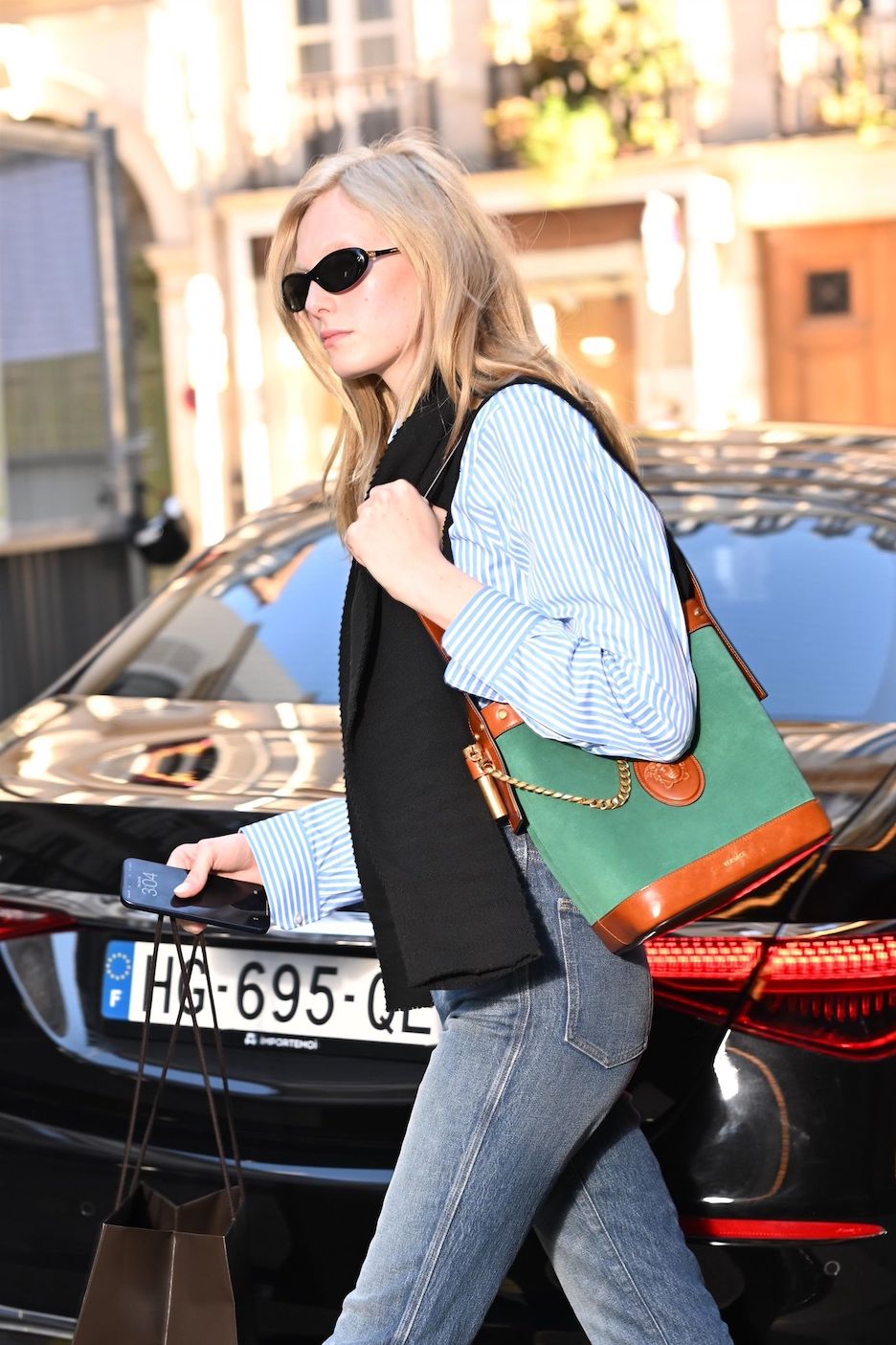
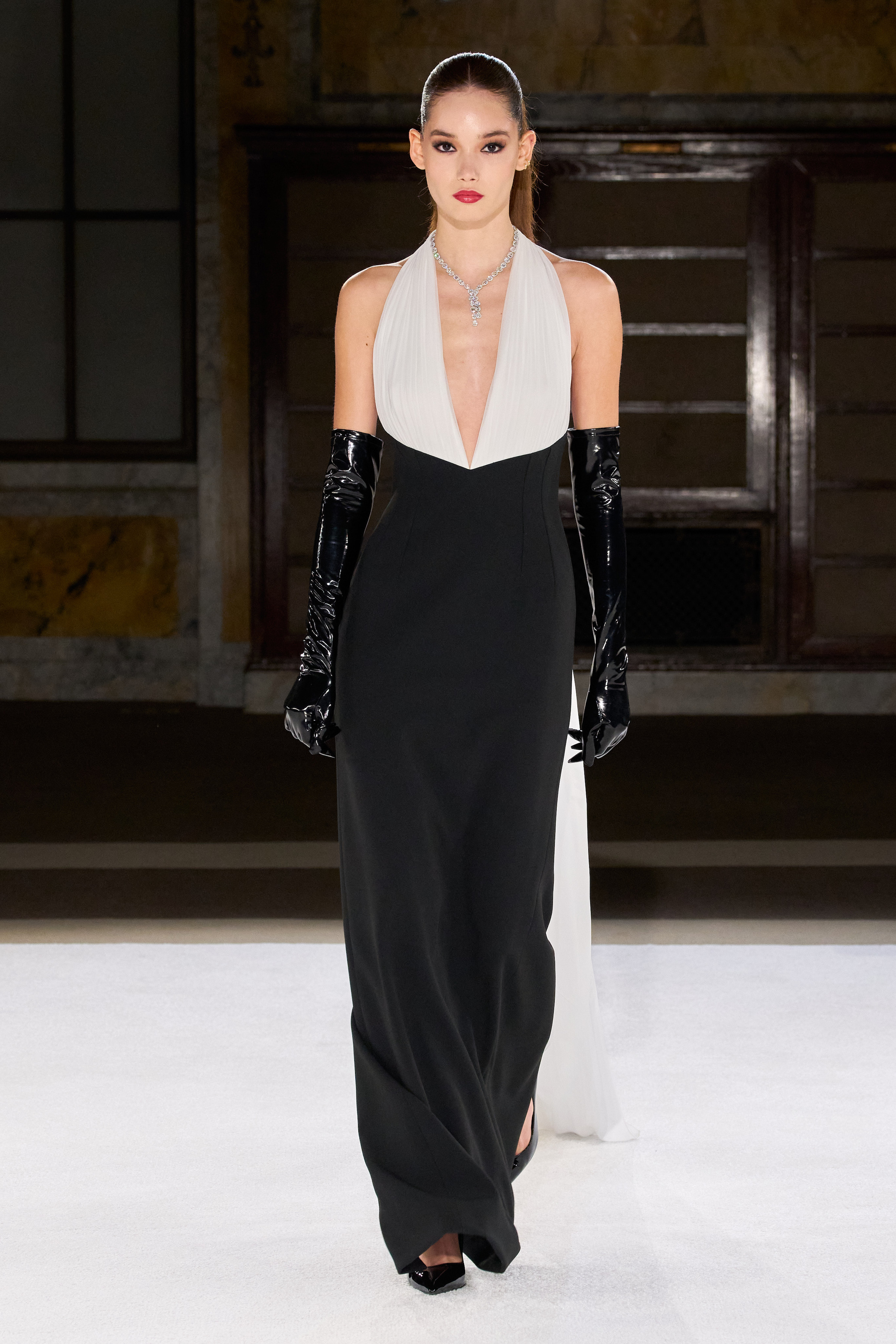
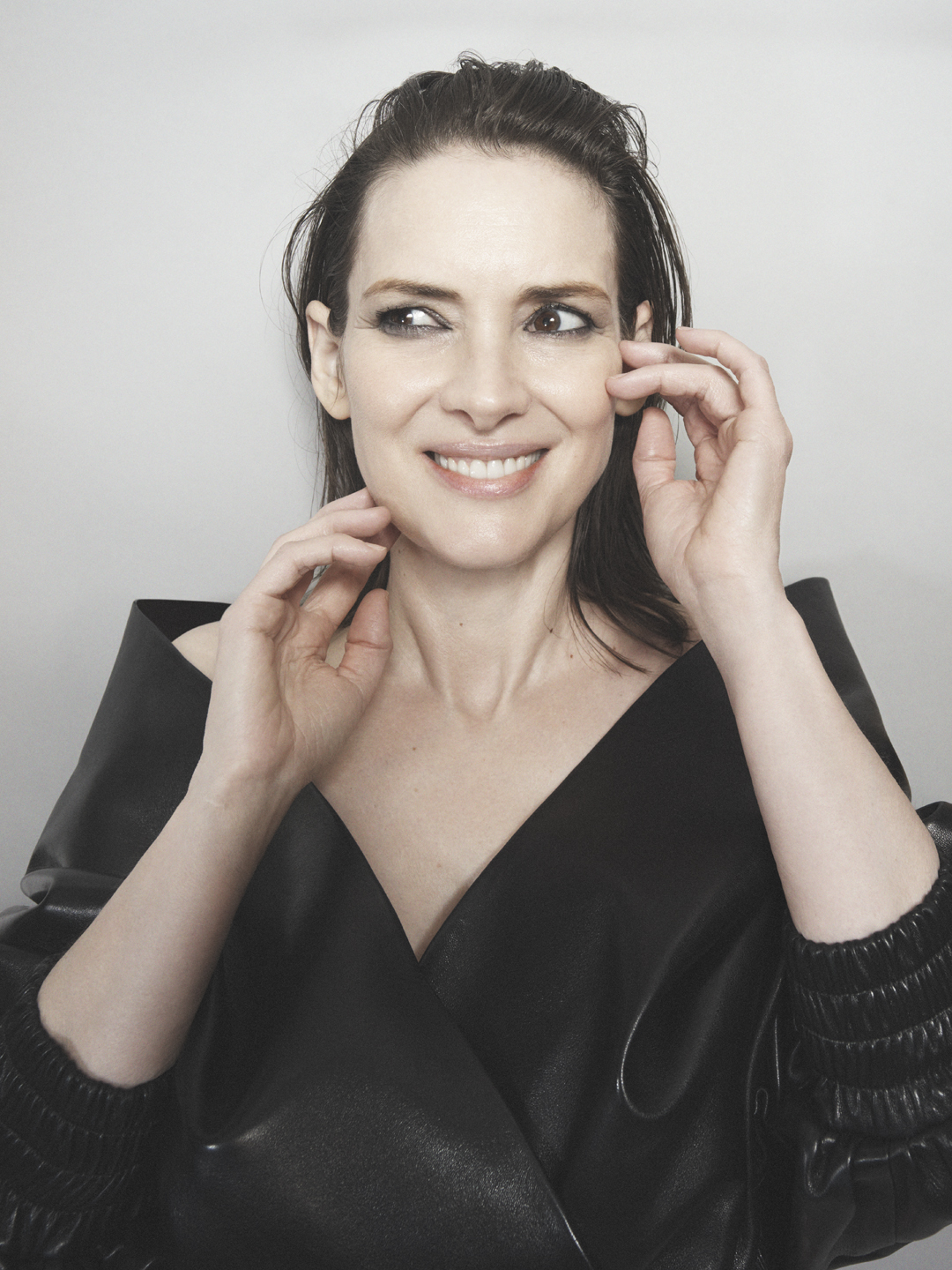
.jpg)
